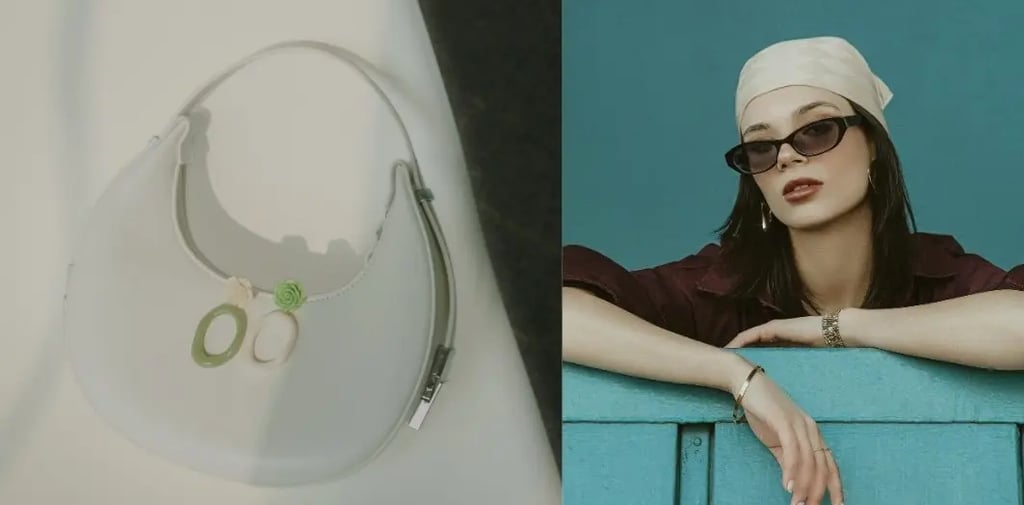How Gen Z is Changing What It Means to Be an Influencer
When Instagram influencers first began dominating feeds a decade ago, the formula for success seemed simple: flawless photos, carefully staged moments, and a lifestyle designed to trigger equal parts admiration and envy. The influencer was, in many ways, a living advertisement — aspirational but accessible enough to keep you scrolling. Their job was to be the person you wanted to be, and their content was the catalogue to get you there.
Taylor Wilson
8/11/20253 min read


When Instagram influencers first began dominating feeds a decade ago, the formula for success seemed simple: flawless photos, carefully staged moments, and a lifestyle designed to trigger equal parts admiration and envy. The influencer was, in many ways, a living advertisement — aspirational but accessible enough to keep you scrolling. Their job was to be the person you wanted to be, and their content was the catalogue to get you there.
Today, that image is crumbling, and it’s largely thanks to the youngest generation of digital natives. Gen Z, those born between the late 1990s and early 2010s, grew up not just using social media but watching its inner workings play out in real time. They have seen the filters, the brand deals, the mental health toll, and the carbon footprint of endless consumerism. And they’re not interested in perpetuating the same glossy, airbrushed myth. Instead, they are quietly — and sometimes loudly — rewriting the very definition of what it means to have influence.
For this generation, authenticity isn’t a clever marketing tactic; it’s a moral baseline. They have zero patience for creators who preach transparency but hide their sponsorships, or for those who share a “candid” moment that is clearly anything but. The influencers who thrive with Gen Z aren’t necessarily the ones with the biggest follower counts — they’re the ones willing to show the messy apartment, the failed project, the unfiltered reality of their lives. To an older generation, this might look like oversharing. To Gen Z, it’s simply telling the truth.
And that truth extends far beyond personal branding. Gen Z expects the people they follow to stand for something beyond self-promotion. Whether it’s climate action, racial justice, mental health advocacy, or LGBTQIA+ rights, a values-based stance isn’t optional — it’s essential. Silence on issues that matter is often interpreted not as neutrality, but as complicity. This is why you’ll see young creators interrupt their fashion hauls to talk about voting rights, or blend a makeup tutorial with a discussion about sustainability in the beauty industry. Influence, in this new era, is inseparable from impact.
The relationship between influencers and their audiences has shifted too. In the early days of the industry, success was measured in numbers — a million followers meant you had “made it.” But Gen Z is dismantling that idea, proving that a deeply engaged, niche community is more valuable than a sea of disengaged spectators. Many of their favourite creators have follower counts in the thousands, not the millions, yet can sell out a small business’s product line overnight because their audience trusts them implicitly. This isn’t about being a celebrity; it’s about being a friend, a peer, a voice you actually want to hear from.
Monetisation, in Gen Z’s world, is also handled differently. They are pragmatic about creators making money — they understand that producing high-quality content is labour, and labour deserves to be paid. But they expect absolute transparency in the process. Influencers who quietly slip a brand into their content without disclosure are met with swift backlash, while those who openly share the details of their partnerships earn respect. In fact, some of the most loved Gen Z creators talk frankly about how they negotiate rates, why they turned down certain offers, and how they balance paying the bills with staying true to their audience.
The aesthetic has undergone a radical transformation as well. The once-dominant look of millennial Instagram — all white walls, peonies in vases, and soft pastel flat lays — has been replaced by something more chaotic, more playful, and far less polished. Gen Z celebrates photo dumps with mismatched lighting, low-res screenshots, and videos shot in bad lighting on purpose. Perfection isn’t aspirational anymore; it’s suspicious. Realness, with all its imperfections, is the new gold standard.
Importantly, Gen Z creators are not content to build their entire careers on platforms they don’t own. They’ve seen what happens when an algorithm changes or a platform falls out of favour. So they’re moving their audiences to newsletters, podcasts, and even in-person events — spaces where they control the connection. This diversification isn’t just smart business; it’s an act of creative independence.
Perhaps the most fascinating shift is that Gen Z isn’t just influencing their own peers — they’re influencing upwards. Their approach to sustainability, their language around identity, their demands for corporate accountability are filtering into the habits of Millennials, Gen X, and even Boomers. They’re not just trendsetters for the next wave; they’re cultural catalysts for everyone else.
The result is that being an influencer in the Gen Z era isn’t a role you play; it’s a responsibility you hold. It’s not enough to be beautiful, clever, or funny — you have to be conscious, transparent, and human. And maybe, in stripping away the gloss, in replacing the aspiration with honesty, Gen Z hasn’t just changed what it means to influence; they’ve made the word worth believing in again.
